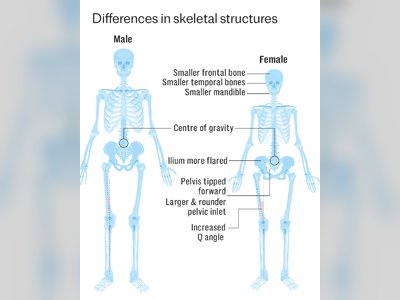The AI-Powered Education Revolution: Market Potential and Transformative Impact
Introduction
AI-based online education platforms are rapidly emerging as the next big thing in learning. These platforms leverage artificial intelligence to personalize instruction, automate grading, and enhance engagement – unlocking huge potential across global education. The momentum built during the pandemic for online learning has evolved into a lasting shift toward digital education, now supercharged by AI innovations. This report analyzes how AI-driven education benefits students of all ages and subjects, empowers parents and teachers, and forces educational institutions to fundamentally rethink how they function and charge for services. It also examines why investors and policymakers should take note of this transformation, in a fact-based, analytical style reminiscent of a McKinsey report.
Surging Global Demand and Market Growth
Robust Growth Trajectory: The demand for online learning is strong and growing exponentially. By the end of 2022, global enrollments in Massive Open Online Courses (MOOCs) had surpassed 220 million learners, and this figure continues to climb. Leading platforms like Coursera alone have attracted 168 million registered users as of early 2024. This massive user base reflects a broad shift in how people access education – from schoolchildren in remote areas to professionals seeking new skills.
Large Market and High Growth Rates: The global online education market was valued around $30 billion in 2021 and is on track to reach approximately $180 billion by 2030, growing at an impressive ~23% CAGR. Within this, the subset of AI-enabled education is expanding even faster: estimated at $5.9 billion in 2024 and projected to hit over $32 billion by 2030 (a CAGR of 31%). For context, total worldwide education and training expenditure – including traditional formats – is expected to be a $10 trillion industry by 2030. AI-based e-learning thus has a vast headroom to grow as it captures a larger share of this $10T pie.
Post-Pandemic Endurance: The pandemic era forced hundreds of millions of students online, and while some traditional in-person learning has resumed, online platforms have proven their staying power. Industry dynamics merit an A+ in theory: delivering instruction digitally avoids the costs of physical infrastructure and large teaching staff, suggesting ample room for profitability. In practice, some early “edtech” entrants struggled with user dropout rates and high content development costs, leading to post-pandemic dips in earnings. However, the integration of AI is now addressing these challenges, lowering costs and improving retention. This positions AI-powered education companies for stronger unit economics and sustained growth going forward.
Workforce Reskilling Imperative: A major demand driver is the fast-changing nature of work, which puts employees on a continuous learning treadmill. As AI and automation disrupt industries, workers must frequently upskill to stay relevant. Job postings increasingly require evidence of ongoing learning and new certifications. The World Economic Forum estimates that, out of every 100 workers worldwide, 59 will require retraining by 2030. This creates enormous demand for flexible online programs to re-skill and up-skill adults. AI-based platforms can deliver this training at scale, on-demand.
Benefits of AI-Driven Learning Platforms
Personalized Learning at Scale: AI tutors and adaptive learning systems can tailor content to each student’s pace, style, and knowledge gaps. This personalization keeps students engaged and improves outcomes for all ages. AI can mentor each learner individually, something a single human teacher in a large classroom cannot do.
Anytime, Anywhere Access: Online platforms break down geographical and time barriers. Students can learn 24/7, from any location, often on any device. Rich multimedia content is available on-demand, democratizing education by reaching rural or underserved areas.
Continuous and Lifelong Learning: AI education systems support lifelong learning. People of any age can pursue new courses. This trend aligns with labor market needs and is supported by corporate and government training initiatives.
Efficiency and Cost Savings: AI automation drastically reduces the cost of content delivery and administration. AI can instantly grade quizzes, generate practice questions, and summarize lesson materials automatically. Productivity gains and labor cost reductions are already being reported.
Engagement and Efficacy: AI-driven platforms use gamification, simulations, and real-time feedback to improve student engagement and learning outcomes. Duolingo’s introduction of GPT-4 powered conversational tools is a prime example, driving both learning success and monetization.
Disruption for Educational Institutions
Shifting Role of Institutions: With knowledge now abundant online, traditional institutions are evolving into mentoring and assessment hubs. Flipped classrooms and blended learning are emerging as standards. Schools that integrate AI platforms see better student engagement and academic performance.
Pressure on the Traditional Model: The traditional education model with fixed schedules, large class sizes, and high tuition is being questioned. Students can access comparable content online at a fraction of the cost, pressuring institutions to innovate on value delivery.
Unbundling of Credentials: Learners can now acquire specific skills and certificates online. Micro-credentials are gaining acceptance among employers. Universities are being pushed to offer modular programs and recognize online learning credits.
Global Equity and Access: AI education improves access in underserved areas. Government digital infrastructure programs are supporting this transition. National virtual learning platforms may become permanent, complementing physical schools.
Changing Economics for Schools: AI reduces the need for teaching staff and facilities, but institutions may face pressure to pass cost savings to students. New pricing models are emerging, including subscription-based education and hybrid online-campus structures.
Investor Perspective: EdTech’s Financial Outlook
Strong Unit Economics with AI: AI lowers content and delivery costs while improving learner outcomes. Coursera’s gross margins exceed 50% in consumer and 68% in enterprise segments. AI features increase retention and premium plan adoption.
Improving Profitability Metrics: Edtech companies like Coursera and Udemy are reporting profitable quarters after restructuring and AI integration. Udemy’s Q2 2025 earnings showed $28.4M in adjusted EBITDA, up from $5.5M a year prior. Coursera reported $18M adjusted EBITDA on $187M in revenue.
Market Valuations and Upside: Despite sector improvements, many edtech stocks trade below 2× forward sales. Duolingo is a notable exception, trading at ~11× sales and 85× forward earnings, indicating investor confidence in AI differentiation.
Reskilling Boom = Long-Term Tailwind: As AI disrupts labor markets, online education platforms will benefit from demand for continuous learning. Employers, workers, and governments are driving this shift. The global need for retraining supports sustained growth for AI-powered platforms.
Key Players and the Road Ahead
Coursera and Udemy: Both platforms serve massive global audiences. Coursera has 168M learners; Udemy offers over 200,000 courses. Both are integrating AI to improve efficiency and learning outcomes.
Duolingo: Duolingo’s GPT-4 powered features have led to higher engagement and ARPU. Its success shows that consumers will pay for personalized AI-powered education.
Emerging Innovators: A new Saudi and EU-backed startup, “AI Education Systems,” is reportedly developing an AI-first platform to provide personalized learning at scale. This may represent the next major wave of innovation in education.
Big Tech and Others: Tech giants like Google and Microsoft are entering education with AI tools. OpenAI’s ChatGPT is already used informally by students. The broader learning ecosystem is converging, and partnerships between edtech firms and big tech are expected.
The Road Ahead: Future advancements will include AI instructors in VR classrooms, real-time adaptive testing, and deeper integration with workforce credentials. Policymakers must adapt standards to account for these new tools. Education is becoming a scalable, personalized, lifelong service.
AI and online education are converging to create an ecosystem that is more accessible, effective, and financially sustainable than traditional models. The transition is well underway, and the implications span education, labor, technology, and capital markets globally.










